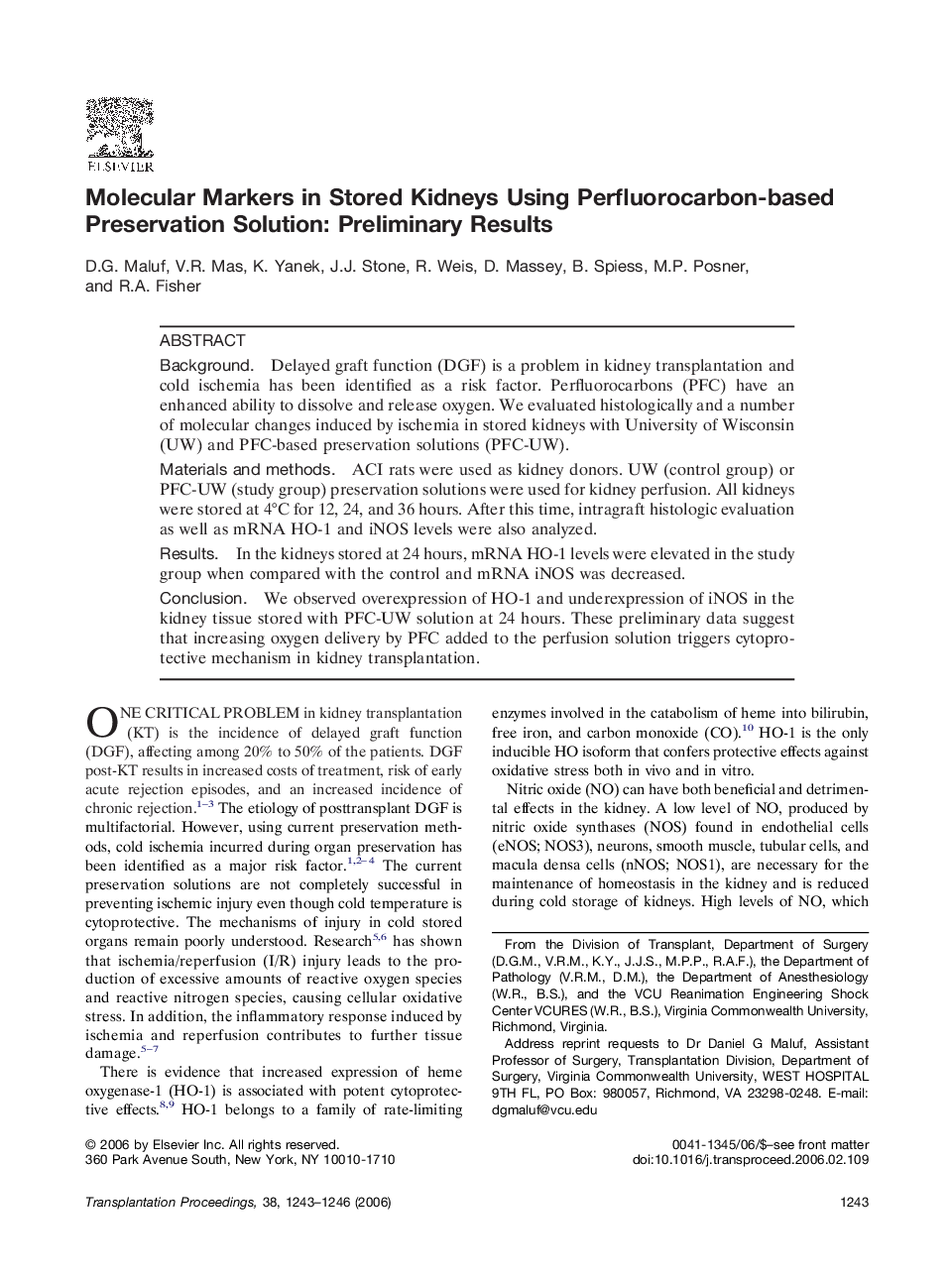| Article ID | Journal | Published Year | Pages | File Type |
|---|---|---|---|---|
| 4263406 | Transplantation Proceedings | 2006 | 4 Pages |
BackgroundDelayed graft function (DGF) is a problem in kidney transplantation and cold ischemia has been identified as a risk factor. Perfluorocarbons (PFC) have an enhanced ability to dissolve and release oxygen. We evaluated histologically and a number of molecular changes induced by ischemia in stored kidneys with University of Wisconsin (UW) and PFC-based preservation solutions (PFC-UW).Materials and methodsACI rats were used as kidney donors. UW (control group) or PFC-UW (study group) preservation solutions were used for kidney perfusion. All kidneys were stored at 4°C for 12, 24, and 36 hours. After this time, intragraft histologic evaluation as well as mRNA HO-1 and iNOS levels were also analyzed.ResultsIn the kidneys stored at 24 hours, mRNA HO-1 levels were elevated in the study group when compared with the control and mRNA iNOS was decreased.ConclusionWe observed overexpression of HO-1 and underexpression of iNOS in the kidney tissue stored with PFC-UW solution at 24 hours. These preliminary data suggest that increasing oxygen delivery by PFC added to the perfusion solution triggers cytoprotective mechanism in kidney transplantation.
